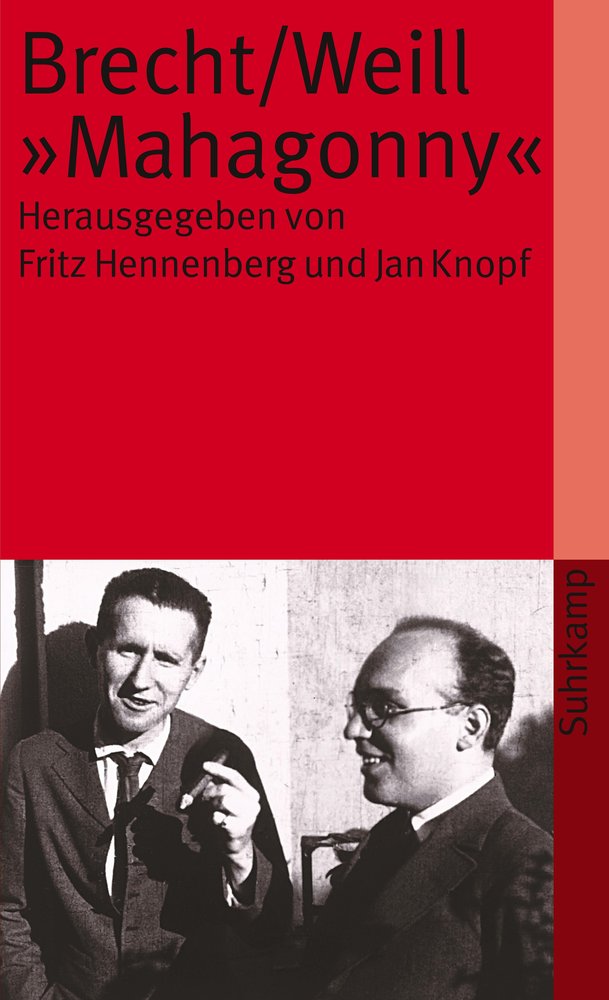"Der vorliegende Band präsentiert sämtliche poetischen Texte Brechts zum Thema Mahagonny: die verschiedenen Fassungen des »Songspiels« sowie die Urfassung der »Oper in drei Akten«, dazu mehrere Vorstufen und Neufassungen einzelner Szenen; außerdem sämtliche Gedichte aus dem Umkreis, die er teilweise zunächst in seine Gedichtsammlung Bertolt Brechts Hauspostille aufgenommen hat. Es folgen Äußerungen von Brecht und auch von Kurt Weill über die Oper im allgemeinen und die Möglichkeiten ihrer Erneuerung. Die Entstehungsgeschichte von Text und Musik wird durch Erinnerungen von Zeitgenossen dokumentiert. Bislang unbeachtet geblieben ist dabei, daß Brecht mit dem Text für die Oper vor der Dreigroschenoper fertig war, während Weill Aufstieg und Fall der Stadt Mahagonny erst danach vertonte. Die Turbulenzen rund um die Inszenierungen des Stücks Ende der zwanziger und Anfang der dreißiger Jahre lassen sich durch eine Vielzahl von Kritiken belegen; hinzu kommt eine weitere Plagiatsaffäre. Zeitgenössische und neue Deutungen und Analysen beschließen den Band."



